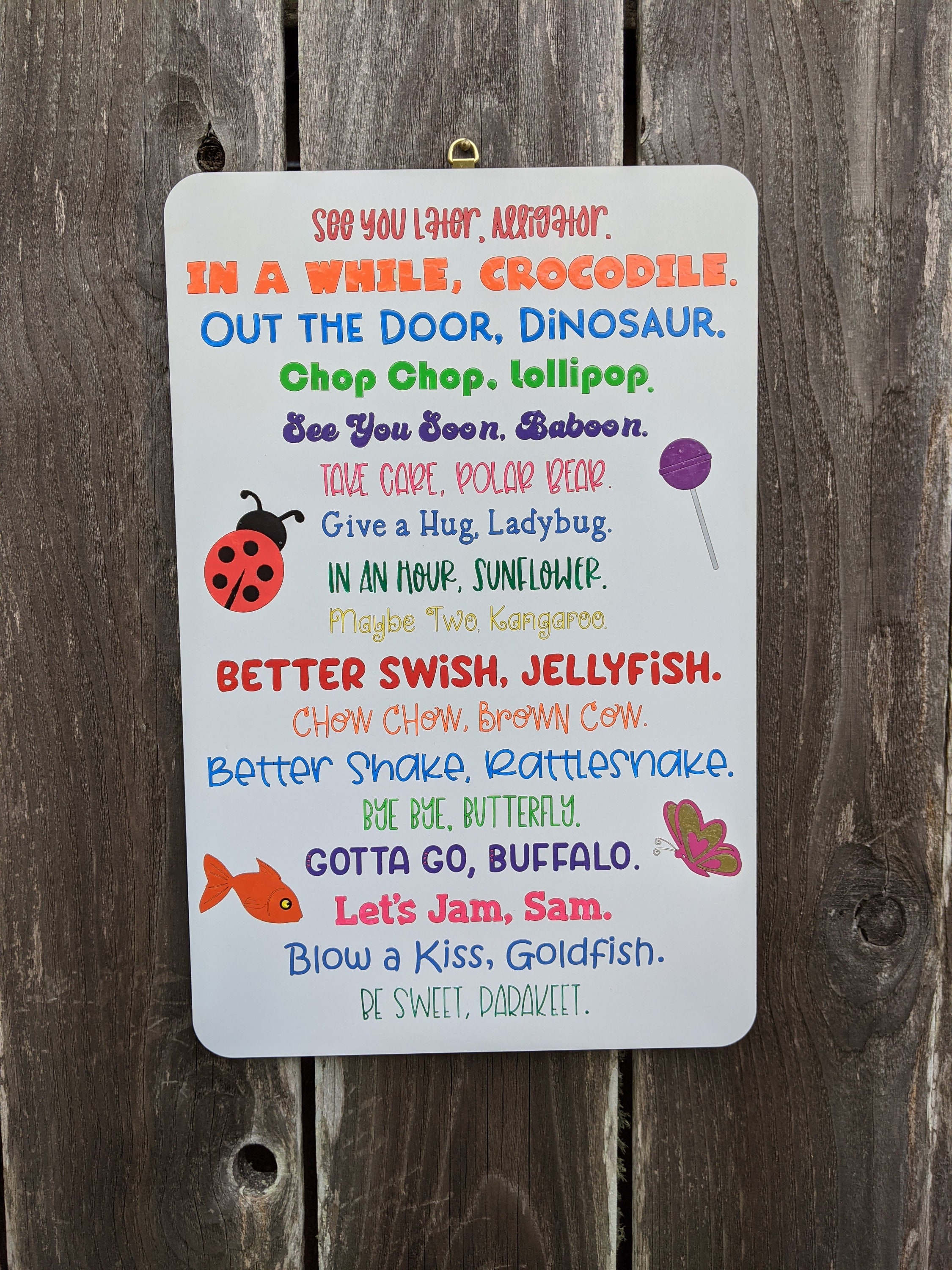

The joke and the fun from rhyming two unrelated words is completely lost when translated into English, but remembering the equally nonsensical see ya later alligator makes it easy to appreciate. Le jeu (the game) is all about finding some form of transportation that rhymes with a unit of time. There’s even one for when you’ll never meet again:
SEE YOU LATER PLUS
À plus dans le bus is actually part of many similar sayings that take on the same format: I couldn’t find l’origine (the origin), but I did learn something better. I was still curious about l’expression française and why it mentions le busso I decided to look it up once I had the time. While it turns out there isn’t an equivalent French idiom involving les alligators et les crocodiles, a lot of laughs were shared as we both struggled to understand new expressions. See ya later alligator! After a while crocodile!ĭo you have the same expression in French? I just realized that there’s a similar expression in English! À plus l’alligator ! À bientôt le crocodile !Įst-ce qu’on a la mème expression en français ?Īh yes! You still don’t understand what it means? Je viens de me rendre compte d’une expression similaire en anglais ! Tu te souviens de ce que tu viens de dire ?Īh oui ! Tu ne comprends toujours pas qu’est-ce que ça veut dire ?

Remembering the silly saying, I immediately got up and asked mon collègue about it to see if my childhood expression also exists en français: Growing up, I often used a similar joke with ma mère (my mother) all the time: Satisfied with a basic understanding of l’expression, I gave a quick smile and returned to mon bureau (my desk).Īfter sitting down though, I suddenly realized why something absolutely nonsensical made so much sense to me. However, unlike what usually happens with les nouvelles expressions, once mon collègue repeated it, I understand what it meant and how it was tied to l’humour (humor). After our brief exchange, they said what was for me une nouvelle phrase (a new sentence): à plus dans le bus.īien sûr (of course), I didn’t understand it and immediately gave a puzzled « quoi » (“what?”) as a response. This saying came up while I was talking with un collègue (a coworker) the other day. Pushing the limits of le second degré (sarcasm) even makes some sense in a dry humor kind of way. L’expression itself is actually easier to understand than others that are dripped in metaphors or tied to specific cultural references:Įven though the dans le bus (on the bus) part makes absolutely no sense when you’re unfamiliar with l’expression, it’s easy to accept that it’s just une blague (a joke). A YouTube video will help you learn the song so that you can feel comfortable singing, even if you can’t read music.Of the many expressions I’ve misunderstood over the years, there is one that recently came up that particularly stands out. It appears as if the hand is waving-a great way to keep kids focused and engaged while learning virtually. The second version is 51 pages and includes a stop motion visual trick. cause time wasn’t in our favor this isn’t goodbye, this is simply see you later let me know when it’s time to come back maybe when your life is on track and you don’t have to hesitate hopefully it. It includes a notated lead sheet to help you remember the song. Sis29 (primarily), Melissa, L.A, and others came up with some interesting responses: See ya soon big baboon.
The digital downloads include two versions of the book and an instructional sheet. Answer (1 of 10): This question was also asked on Yahoo. Verse 1 C Am Its funny cuz Ive always dreamed of me and you now here we are G Staring at the stars C Am You just broke my heart even though you promised youd never do that from the start G But I guess we can only make it so far Pre-Chorus Am G C Cuz time wasnt in our favor Am G C Am F This isnt goodbye, this is simply a see you. They will learn several phrases to expand on the traditional See You Later Alligator goodbye. Children and adults alike will enjoy singing along with this rhyming book.


 0 kommentar(er)
0 kommentar(er)
